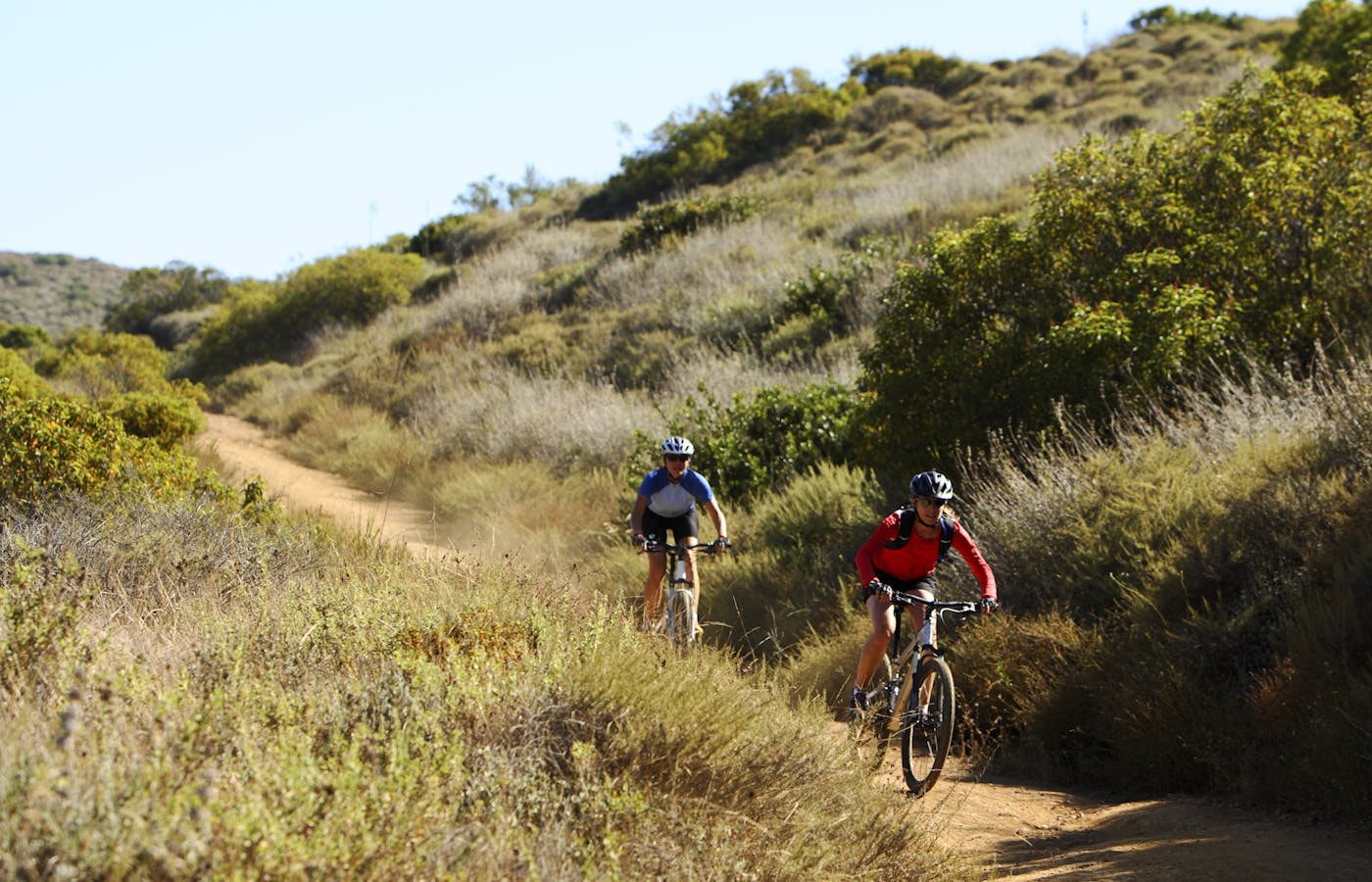A Pro-Recreation Policy Package Is on the Horizon
By: Noa Banayan, PeopleForBikes’ director of federal affairs

New legislation in Congress could help identify 10 long-distance bike trails and invest in rural communities’ recreation potential.
Despite hyperpartisanship and gridlock on most issues before Congress today, outdoor recreation legislation continues to build momentum and support from both sides of the aisle. Instead of resting on our laurels after the monumental success of the Great American Outdoors Act becoming law, the outdoor advocacy community and champions in Congress are working hard to ensure the legacy continues with the first recreation-focused policy package in American history.
At PeopleForBikes, we’re excited about two outdoor bills in particular: the Biking On Long Distance Trails (BOLT) Act and the Rural Outdoor Investment (ROI) Act. These bills could help make recreational bike riding more accessible and support local economic growth — and have a strong shot at being turned into law this year.
Some of the most scenic bike riding in the United States can be found on dedicated, long distance trails across spectacular landscapes, varied terrains and in diverse communities nationwide. Picture-perfect experiences that range from the rugged Continental Divide Trail, to more family-friendly rail trails and everything in between make for amazing mountain biking, bikepacking and touring, gravel riding and more.
The bipartisan BOLT Act (H.R. 6337/S. 3264), led by Representatives Joe Neguse (D-CO), Susie Lee (D-NV) and Kelly Armstrong (R-ND) and Senators Ben Ray Lujan (D-NM) and Kevin Cramer (R-ND), would direct the Secretaries of Agriculture and Interior to:
- Identify no less than 10 existing long-distance bike trails on Federal lands in excess of 80 miles in distance.
- Identify 10 areas where opportunity exists to develop or complete long-distance bike trails on federal lands in excess of 80 miles in distance.
- Coordinate with stakeholders on the feasibility of completing long distance trails and the resources necessary for such projects.
- Publish maps, signage and promotional materials highlighting the positive aspects of the long-distance trail network.
- Issue a report, with input from stakeholders, outlining the details of existing and proposed long-distance trails and their promotion.
The House Natural Resources Committee recently held a hearing on the BOLT Act, to which PeopleForBikes submitted testimony in support alongside our partners at the International Mountain Bicycling Association, Adventure Cycling Association and Bikepacking Roots. This follows the Senate Energy and Natural Resources Committee’s hearing in December on BOLT and other outdoor recreation-focused legislation (which you can read more about here).


The newly introduced ROI Act (S. 3583), from Senators Chuck Schumer (D-NY) and Michael Bennet (D-CO), would create a $50 million/year program to fund outdoor recreation infrastructure, planning and business assistance in rural communities nationwide. This funding will support communities and economies hard hit by the pandemic, disasters as a result of climate change like wildfires and floods and transitions in industry and job markets by investing in a sector poised for sustainable and long-term growth: outdoor recreation.
Adult participation in bicycling increased 10% since the start of the pandemic, matching record growth in other sectors of the outdoor industry.
The Outdoor Industry Association's Outdoor Rec Economy report found that mountain bicycling activities, which generally take place in rural areas or rural/urban interfaces, directly contribute to the economy in the following ways:
Jobs: 199,062
Wages and Income: $6,770,289,777
GDP: $10,845,780,477
Federal Taxes: $1,644,535,617
State & Local Taxes: $1,462,548,626
Investing in infrastructure that supports bicycling of all kinds — mountain, gravel, touring, road and more — grows communities’ culture of recreation and has proven economic returns for rural economies. The ROI Act will take advantage of the growing excitement for outdoor recreation by helping rural areas put a down payment on their sustainable future as outdoor recreation-based economies.
Related Topics:
